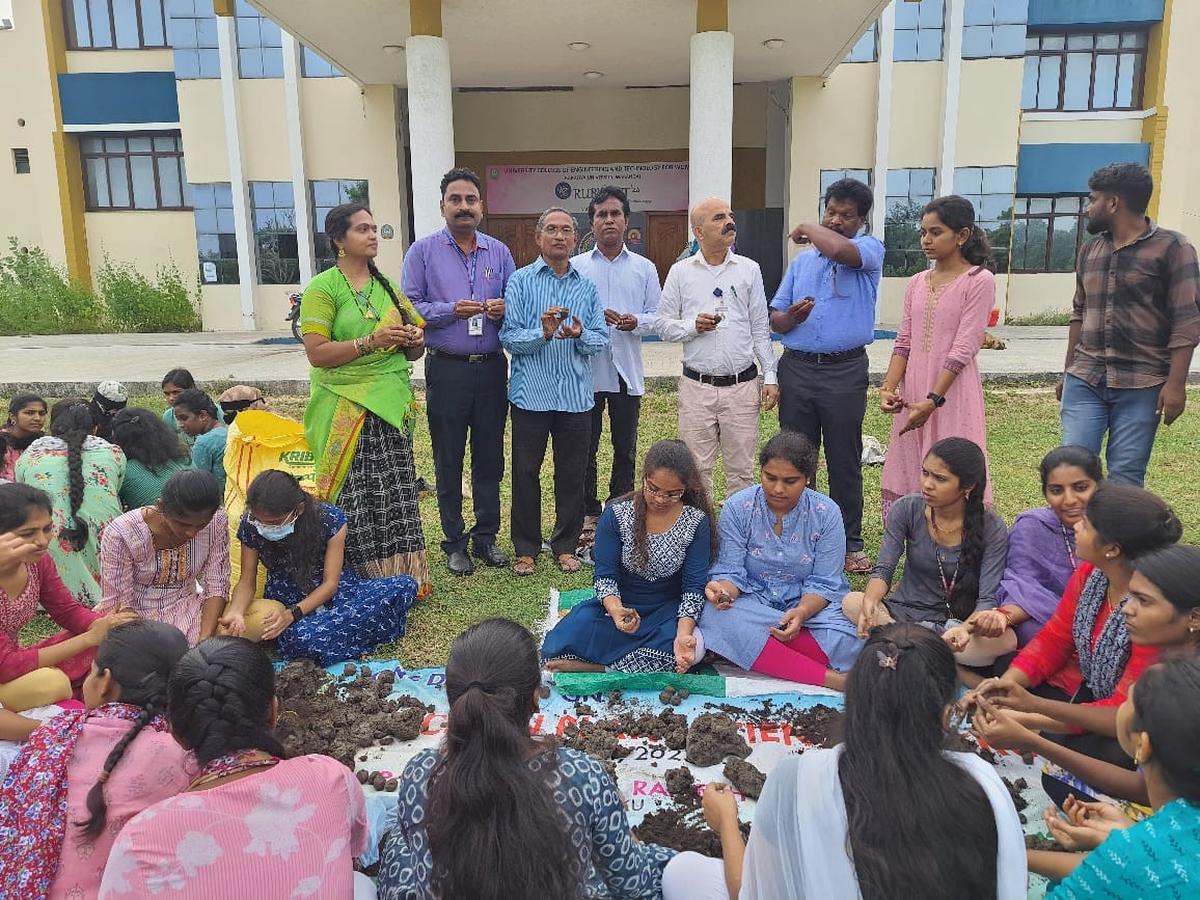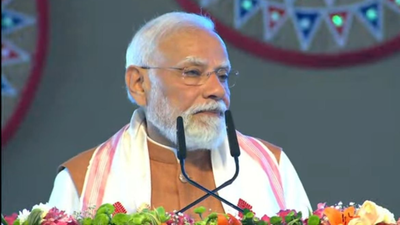
NSS volunteers of Kakatiya University, Warangal, preparing the seed balls.
To promote environmental consciousness among students and help increase the green cover, Vasavi Clubs International, a social service organisation, is set to launch a massive seed ball dispersion initiative on October 2, marking Gandhi Jayanti. Over one crore seed balls were prepared in about a week by school and college students across Telangana, Andhra Pradesh, Tamil Nadu, Kerala, Karnataka, Maharashtra, and Odisha through 1,200 clubs affiliated with Vasavi Clubs International.
Past president of Vasavi Clubs International, P. Sudershan, said that approximately 25 lakh seed balls were made in Telangana alone, with the involvement of National Service Scheme (NSS) members and eco-clubs in schools. “We will be dispersing the seed balls on vacant government lands, hillocks, and other areas in need of afforestation, with guidance from Forest department officials,” he stated. The remaining seed balls will be handed over to the Forest department after the event. He also noted that the organisation’s efforts had earned them recognition in Elite World Records under the category of “Most locations for seed ball making and collection drive by an organisation.”

KU Registrar Prof. P Malla Reddy, NSS programme officials inspect the seedball preparation programme.
In the erstwhile Warangal district, 45 Vasavi Clubs prepared over two lakh seed balls, according to Dr. Vallala Prudvi Raju, Programme Coordinator of Vasavi Club International. He further mentioned that 20,100 seed balls were made with the help of NSS volunteers from Kakatiya University, under the supervision of NSS programme officer Dr. Radhika. “We will be dispersing these seed balls on the Kakatiya University campus on October 2,” he added. The seed balls, costing ₹5 each, were made using amla, saffron, date palm, gangi plum, custard apple, and pomegranate seeds. Prudvi Raju, who also serves as Assistant Registrar at Kakatiya University, emphasised the effectiveness of the seed ball method. He explained that seed balls provide natural protection against environmental challenges such as drying, being eaten by animals, or being carried away by the wind. With an 80% success rate, seed balls are a more efficient and stable method for afforestation compared to traditional saplings. They can be stored for up to a year, ensuring healthy sapling growth, he added.
Published – October 01, 2024 06:55 pm IST





